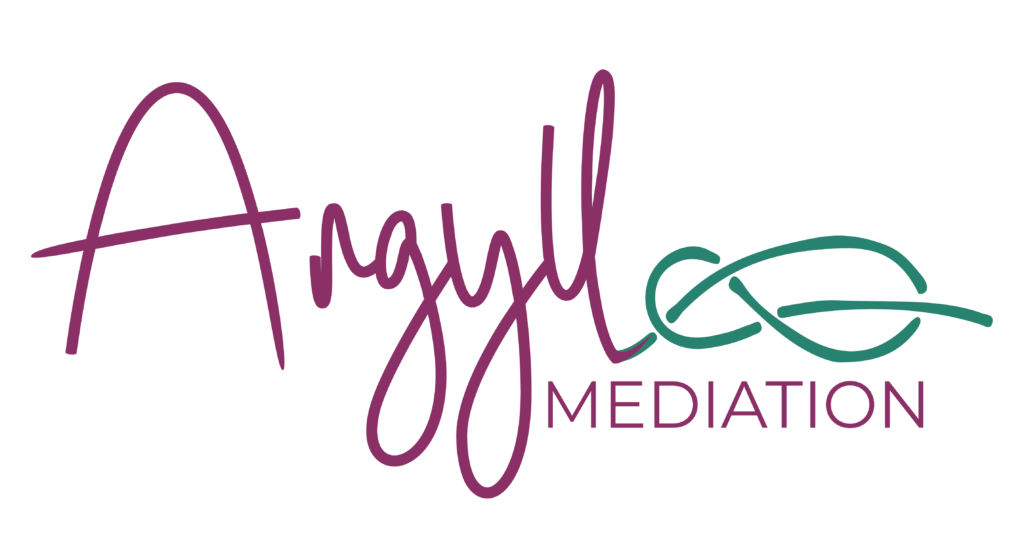
Mediation is a way of resolving disputes between people in conflict, usually facilitated by a neutral person. Separated families are encouraged to use family mediation to help resolve their disputes about children, instead of using the family law courts.
When disputes can’t be resolved by mediation, the matter may need to go to a court for a judge to make decisions. Going to court is a long, stressful and expensive process. The aim of mediation is to avoid the situation reaching this point.
The family law system encourages separated families to come to their own arrangements in caring for their children without going to court.
Family Dispute Resolution (FDR) is a special type of mediation for helping separating families to come to their own agreements. During FDR families will discuss the issues and consider different options, while being encouraged to focus on the needs of their children. FDR uses a neutral and accredited Family Dispute Resolution practitioner- like Argyll Mediation.
The main objective of FDR is to assist participants to make a parenting plan setting out the agreed future parenting arrangements.
As you work with your partner and your mediator to create a parenting agreement, it’s important to be sure that it covers all the important points and leaves no room for misunderstandings later on. Your mediator will ensure that all these points are covered, but it’s a good idea to go into your session with an idea of the things you want to discuss, such as:
- Where the children will live
- When the children will spend time with other family members, such as the other parent and grandparents
- Financial support of the children
- The children’s medical treatment, education and other long-term decisions
At your initial consultation, you will likely discuss these items and more to give you and your mediator a clearer picture of the things that are most important to you. Your partner will have their own separate consultation for the same purpose. Then, at a separate appointment, you and your partner will meet together with the mediator to talk through the issues at hand and come to an agreement.
In the event that you and the other parent are unable to reach an agreement during your child mediation we can provide a section 601 certificate to allow you to pursue the matter further with the help of the court
Is mediation legally binding? Short answer: no.
Agreements reached in mediation are not legally binding. They rely on you both holding up your end of the agreement.
You can make mediated agreements legally binding by completing a Consent Orders application form and lodging with the court. It costs about $165. You could do the application yourself, but it’s fairly complicated and you might find the assistance of a solicitor helpful.
We strongly advise getting independent legal advice before signing a Consent Orders application for parenting or financial.
Let's get started
When you choose Argyll you’ll be working with an experienced, trustworthy and affordable family mediator to help you establish a parenting agreement that’s not just focused on the best interests of your children, but also tailored to meet your family’s specific needs. With a minimal waiting list, we can meet with you and handle your case quickly.
- Flat fee of $580.00 per person- only additional expense is room hire if required
- Pre-mediation and preparation via email and phone
- 3 hours of mediation and agreements prepared in plain English or legal language as required
- Inclusive practice. LGBTIQ clients welcome
For more information or to book your initial consultation, contact us today
Get in touch
